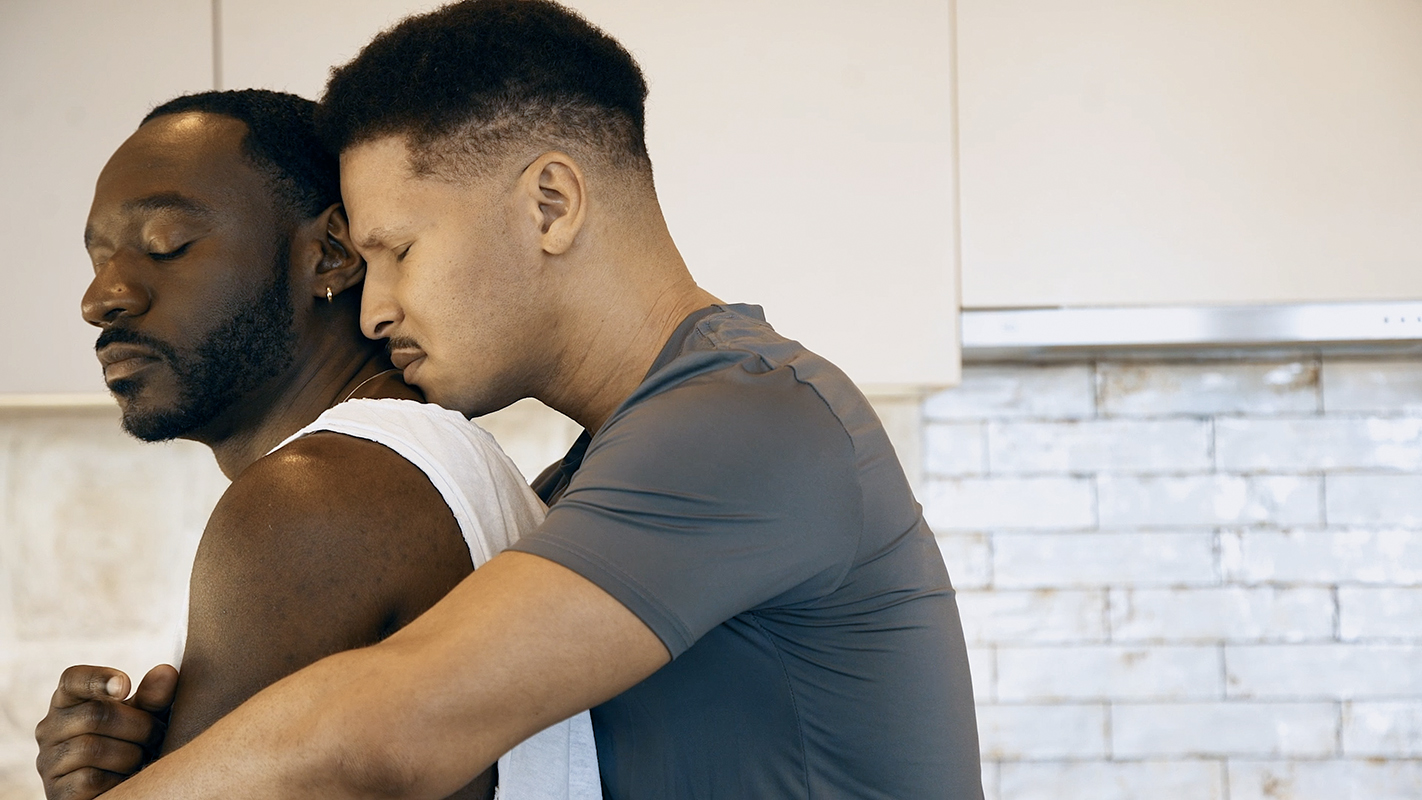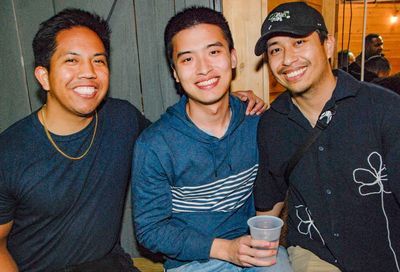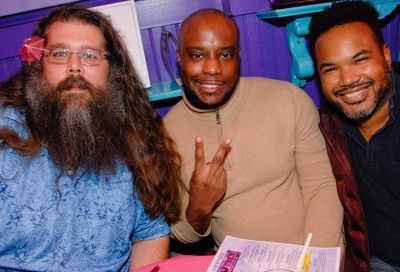In the Red: Gay in a Conservative State
Some LGBT people are making the choice to relocate to traditionally conservative enclaves

“I know that we tend to think of states as blue and red, but it’s a little simplistic,” says Oscar Fleming. “We’re ‘red’ now because Republicans are controlling the districts. But we’re not that conservative.”
When Fleming, a 44-year-old North Carolina native, was offered the chance to relocate to his home state for a new job at the University of North Carolina, he ended his 15-year stint in D.C. There were many benefits to the move, not least that the cost of living in North Carolina is far less expensive than in the District. Accepting the job also afforded Fleming the opportunity to be closer to his family. Encouragement on the home front cemented his decision: his husband, Will, 61, had previously lived in the state for 20 years, and was eager to return.
While Fleming and his husband didn’t have many concerns about moving back to North Carolina, some of his university colleagues from outside the South have been a little more cautious about the social implications of moving to a red state — particularly if they are members of or close to the LGBT community.
“People have been concerned about it,” Fleming says. “I have a good friend who’s part of a straight couple who moved from Portland, Oregon. They moved here when Amendment One [which banned same-sex marriage] was being voted in. And she has a lesbian sister who lives here. So that was kind of a slap in the face.
“I have a colleague that was here for a couple of years,” he continues. “She and her wife moved down here from Minneapolis, which is another super-liberal city. So I think a lot of people who move here and aren’t familiar with the South are rightfully concerned.”
That’s not to say Fleming and his husband didn’t have their own worries. But they were moving back to the liberal-leaning area of the state, known as the Research Triangle, where attitudes on homosexuality tend to be more accepting. They were also given some sense of security by various financial and legal arrangements — such as power of attorney and wills — they had put in place years ago, long before even D.C. had legalized marriage equality. That forward-planning gave them peace of mind, even though North Carolina didn’t recognize their marriage at the time of their move — something a federal court corrected in 2014. Despite that, the state still lacks LGBT nondiscrimination protections in employment, housing and public accommodations.
“Moving here was a step backwards in a way, but we were prepared for it,” he says.
Moving to a state that is culturally “red” might give many LGBT people pause. Yet many are choosing to move to traditionally conservative states for other factors, including job opportunities, lower cost of living, warmer climates and lower taxes. And as LGBT rights slowly become more accepted by mainstream society, many are choosing to venture into states that are not as widely known for the presence of a vibrant gay community.
This trend was illustrated after ConsumerAffairs.com analyzed data collected from the U.S. Census Bureau and Gallup surveys to create an interactive map of the migration patterns of different demographic groups over the past two decades. Using data from 1990 and 2014, they found that several cities reported an increase in the size of its LGBT community in relation to the total population, and ranked those cities accordingly. Fourteen of those cities that saw an increase in their ranking were in traditionally red or “purple” states — those that have either consistently voted for Republicans or are considered “swing” states. Some of the cities include Columbus, Cleveland, Norfolk, Richmond, Indianapolis, Jacksonville, Louisville, and San Antonio.
“The frustrating thing about this data set is that there’s not any explanation that goes along with it,” says Ryan Daly, content manager at ConsumerAffairs.com. “There’s no additional survey data to explain ‘why do you think this is happening?’ So it’s basically left to inference.
“But you are seeing a kind of migration that’s typical of millennials and young Gen-Xers, moving away from major metropolitan areas that are expensive to live in. If you move to somewhere like Dallas or San Antonio, it’s just cheaper to live. It’s easier to have a comfortable quality of life there.”
Economics was one of the factors prompting Darren Frei and his partner, Anthony Torre, to relocate to Hillsborough, N.C., from New York after Frei was offered a position at a communications firm.
“I have the same salary I had in New York, but I live in a place where it’s dramatically cheaper to live,” says the 40-year-old Frei. Despite moving to North Carolina less than a year after voters approved a constitutional amendment banning same-sex marriage, the couple had not been overly concerned about the lack of protections for LGBT people in the state. Besides, the area surrounding Hillsborough is a more liberal pocket of the state, which allayed most of their concerns.
“I didn’t feel like we were moving to a place where I’d encounter discrimination on a daily basis,” Frei says. “And the company I work for, they offered to put Anthony on my health insurance, and they also flew him down here with me so we could look for a place to live. So I felt like, if I’m moving to a company where I don’t have to worry about nondiscrimination laws, or the lack thereof, it’ll all be okay.”
For David Chambers, a 37-year-old native of Fort Worth, Texas, his own move back to a red state came after 18 years of living in the Northeast, including Philadelphia and Washington, D.C., where he served as a firefighter and an emergency medical technician. When he was offered a job as coordinator for Student Emergency Services at the University of Texas at Austin, the major benefit of moving back home was proximity to his family. But the lack of legal protections Chambers would have as a gay man troubled him.
“It actually concerned me, and that was a consideration when I was weighing to move back to Texas,” he says. “I live in Austin, which is very, very liberal compared to the rest of the state. It’s not unusual to see LGBT couples walking down the street holding hands. The Pride Parade here is about two hours long. But I didn’t know a lot about Austin. It wasn’t some place I had considered moving to, and so I talked to people who had lived down here to see what their thoughts were. And I was told that it’s very much not Texas.
“Now, as soon as you leave the city limits, it’s very different,” he says. “I had actually considered moving to another city that’s really just a small town, and just the lack of being able to be open, the lack of rights, kept me from even considering moving there.”
Still, other LGBT people who have moved to conservative states say that other quality-of-life issues can outweigh the downsides of living in a state without comprehensive nondiscrimination laws. For the South Carolina-born Rob Driggers, moving back to his native Charleston after eight-and-a-half years in Washington was precipitated by his husband’s retirement, as well as the couple’s desire for a less stressful environment.
“In D.C., you’re running to catch the Metro, and you’re working lots and lots of hours because it’s a very profession-driven town,” says the 42-year-old. “You’re constantly moving from A to B in D.C., and the thing we found about Charleston is the pace of life is so much slower. You can be on the beach almost 20 to 30 minutes from anywhere in town. We get Broadway shows here. We get national recording acts and concerts. We have a vibrant arts scene. We have a vibrant restaurant scene.”
Driggers and his husband did have some concerns, such as being able to be recognized for purposes of medical decision-making in case of an accident or illness. But he said they took steps to protect themselves, and recommends that other people moving to conservative states do the same.
“From a strictly educational standpoint, you need to educate yourself ahead of time about what your legal rights are,” he says. “Before we moved down here, we were aware of all the things we needed to have, as far as medical power of attorney and those kinds of things. We also made sure we lived in a city that recognized LGBT rights in terms of house rentals, and job security, and those kinds of things. We were always very cognizant of making sure we had all of our bases covered.”
Driggers also emphasizes that most states, including in the South, have a mixed political ideology, particularly on the local level. LGBT-friendly ordinances, though rare, are slowly becoming acceptable in more liberal pockets of the state, like Charleston. But it’s also important for LGBT people and same-sex couples to integrate themselves into larger society in red states, as personal interaction is the only way to change people’s hearts and minds.
“My husband and I made a point of introducing ourselves to our neighbors and becoming friendly with them, and putting them at ease,” he says. “I’m also a big believer in the idea that the only way people begin to think of the LGBT community as just a normal, average, everyday group of people is that you have to live around them and show yourself to be just a normal, average, everyday group of people. The more of that they see, the more comfortable they get with LGBT rights.”
Support Metro Weekly’s Journalism
These are challenging times for news organizations. And yet it’s crucial we stay active and provide vital resources and information to both our local readers and the world. So won’t you please take a moment and consider supporting Metro Weekly with a membership? For as little as $5 a month, you can help ensure Metro Weekly magazine and MetroWeekly.com remain free, viable resources as we provide the best, most diverse, culturally-resonant LGBTQ coverage in both the D.C. region and around the world. Memberships come with exclusive perks and discounts, your own personal digital delivery of each week’s magazine (and an archive), access to our Member's Lounge when it launches this fall, and exclusive members-only items like Metro Weekly Membership Mugs and Tote Bags! Check out all our membership levels here and please join us today!
























